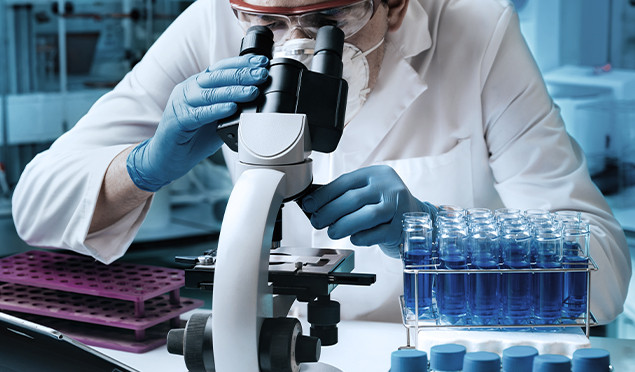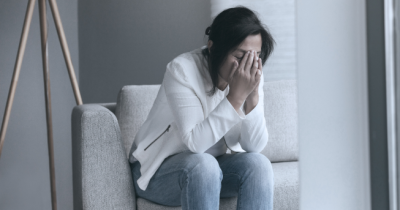We bust all the myths about monkeypox!

Last updated on 5th September, 2022 at 05:48 pm
Dr Genevieve Barry, medical advisor: Sanlam Individual Life, discusses everything you need to know about monkeypox.
Reading time: 5 minutes
In this article you’ll learn:
- The myths about monkeypox, debunked.
- How you can contract monkeypox.
- How to identify the signs and symptoms of monkeypox.
- How you can avoid contracting monkeypox.
The National Institute for Communicable Diseases (NICD) confirmed the first case of monkeypox in South Africa on 23 June 2022. Since then, several myths about the virus have been making the rounds. So, we asked Dr Genevieve Barry, medical advisor: Sanlam Individual Life – medical department, to share everything you need to know.
What is monkeypox?
Monkeypox is an infectious disease with symptoms similar to those historically seen in smallpox patients. It regularly occurs in the tropical rainforest areas of Central and West Africa, but has spread significantly throughout urban areas.
According to Dr Barry, monkeypox is not related to chickenpox, nor is it a new virus. It was first identified in 1958 in Belgium as part of research conducted on monkeys, and then in humans in 1970 – with a few isolated global outbreaks over the years.
Since May 2022, multiple cases of monkeypox were identified in several non-endemic countries including Europe, the UK and the US. In South Africa, the NICD confirmed the second case of monkeypox through laboratory testing on 28 June 2022.
Reality Club, Core, Plus and Health members have access to a free Trauma, Assault and HIV Assist benefit, which includes 24-hour telephonic counselling.
How can you contract monkeypox?
Dr Barry explains that monkeypox is transmitted to humans through close contact with an infected person or animal – usually through direct contact with lesions, bodily fluids, respiratory droplets and contaminated materials, such as bedding. High risk factors included age – as younger children are generally more susceptible to viruses – and close contact.
Signs and symptoms of monkeypox:
The symptoms of monkeypox are similar to those of smallpox. However, they are much milder and rarely fatal.
They include:
- Fever
- Headaches, muscle and back aches
- Swollen lymph nodes
- Chills and exhaustion
- The development of a skin rash that may look like pimples or blisters on the face, inside the mouth or other body parts like hands, feet, chest, genitals or anus
According to Dr Barry, the rash goes through different stages before healing completely. The illness typically lasts for two to four weeks. However, some individuals may first be presented with a rash – with other symptoms following suit. During the recent 2022 outbreak, some patients presented genital, rectal and/or oral lesions without the initial flu-like symptoms, says Dr Barry.
When is a monkeypox-infected person no longer contagious?
An infected person is contagious from the onset of the rash and/or lesions up until the scabbing stage. Dr Barry explains that once all scabs have fallen off, a person is no longer contagious.
Diagnosing monkeypox
A clinical differential diagnosis must be considered before monkeypox is officially diagnosed by a healthcare worker. The nature of the rash would be the most telling sign; however, the healthcare worker would consider possible exposures for the case as the likelihood of contracting monkeypox is extremely low.
Preventing infection
Take the following precautions to help avoid contracting monkeypox:
- Avoid close skin-to-skin contact with the monkeypox rash.
- Do not touch the rash or scabs of a person infected with monkeypox.
- Do not kiss, hug, cuddle or have sex with someone with monkeypox.
- Do not share eating utensils or cups with someone infected with monkeypox.
- Do not handle or touch the bedding, towels or clothing of a sick person.
- Wash your hands often with soap and water, or use an alcohol-based hand sanitiser, especially after contact with sick people.
Dr Barry suggests that a person infected with the monkeypox virus should isolate at home. If they have an active rash or are presented with other symptoms, they should be in a separate room or area, away from other family members and pets.
Who can contract monkeypox?
Anyone can contract monkeypox if they’re exposed to the virus.
Human-to-human transmission can result from close contact with respiratory secretions, skin lesions of an infected person or recently contaminated objects.
Animal-to-human transmission can occur from direct contact with the blood, bodily fluids, or skin lesions of infected animals.
What type of treatment is available for monkeypox?
Treatment is supportive to alleviate symptoms, manage complications and to prevent long-term effects. Most patients have a mild disease and recover without medical intervention. For the seriously ill patient, supportive care is necessary until the patient recovers from the infection.
Antiviral drugs, such as Tecovirimat, may be recommended for people who are more likely to get severely ill, and doctors may consider this on a case-by-case basis.
Worried about your health? As a Sanlam Reality Core, Plus or Health member, you can book a basic medical test at any Clicks pharmacy and a healthcare professional will assess your blood pressure, body mass index (BMI), cholesterol and glucose levels. Plus, you can earn 10 000 tier points!
Vaccines for monkeypox
Dr Barry says that the previous smallpox vaccination offers around 85% protection against monkeypox, and may only result in mild illness, if contracted. She explains that a modified vaccination called Ankara (MVA) was approved for prevention of smallpox and monkeypox in September 2019.
Currently World Health Organization (WHO) does not recommend mass vaccination as a measure to contain the outbreak. The risk of monkeypox to the South African population remains low, given the low transmissibility of the virus.
As a Reality Health, Plus, Core, Club or Access for Sanlam Group Risk member, you can access 24-hour medical assistance and counselling telephonically by calling 0860 732 548/9, for free. Receive help in a situation where assault, accidental exposure to HIV or any other trauma has occurred. Learn more here.
Want to learn more?
We send out regular emails packed with useful advice, ideas and tips on everything from saving and investing to budgeting and tax. If you're a Sanlam Reality member and not receiving these emails, update your contact details now.
Update Now







